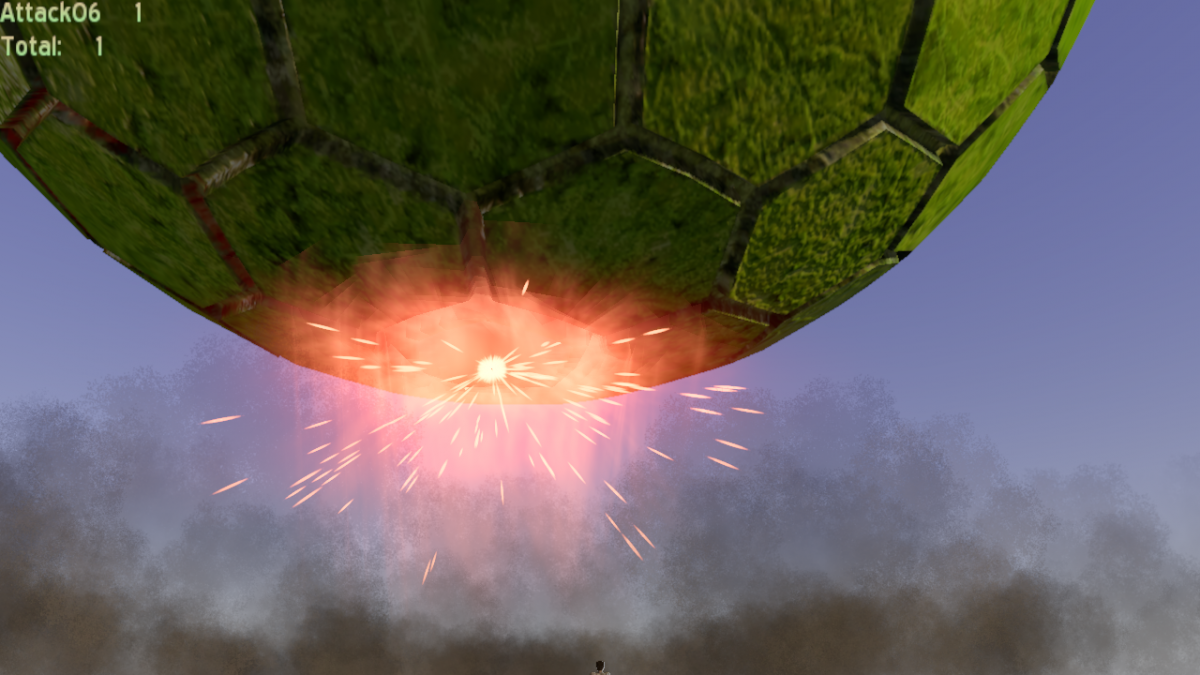I'm just passing by to tell my thoughts out loud regarding Double Fine's success:
- With so many backers, does this:
- Actually mean the company is just getting a lot of pre-sales?
- If, so, the Company gets +1 Million in funding plus revenue for sales; or they won't sell well because of that high ammount of "pre-sales". Is a great portion of his market funding the project; or just a tiny bit?
- Actually mean the company is just getting a lot of pre-sales?
- Will they sell like millions or tens of millions of copies, or just a few thousands more?
- Will Valve be happy to give away +42k free Steam codes? Having a popular, successful game in their portfolio certainly keeps clients loyal to the brand; but Steam might face little direct profit from it.
Due to these interrogations, the concept of "funding" must be carefully taken; because as is; it's potentially including the concept of "profit" itself. Under normal cirumstances, one usually tends to believe that, given a budget, he is allowed to spend most or all of it (as long as it is well spent, well distributed over time, and fits expectations).
Then profit will [s]magically[/s] come to recover the investment. But in this case, profit may have already came in advance; therefore I think it's wise for Double Fine to analyze the situation, where they're standing: What were they initial expectations, their expected budget (i.e. 400k); how much better can the game be made by adding more money to it and what's the upper limit at which throwing more money just doesn't make a better game. The rest of the money's fate can't be taken lightly; unless new information would indicate this is only the tip of the iceberg.
My quick thoughts on the subject. I thought I'd have to share them, since no one seems to be doing this kind of analysis other than "amazing, record-breaking success". I'm happy too that Grim Fandango's creator gets such success; I was kindly surprised as well; but it's easy to overlook the gotchas when one's filled with excitment.
Before I sign off, let's leave with a teaser:

This is a boss fight. Notice down below the character's head...
Until next time...


Would I rather have $10 now, or $15 a year from now? Well, that depends on how much I can make that $10 generate revenue for me during the course of the year.
I also agree that they should be carefully thinking about how to spend the "extra" money. If they thought they could make the game with $400,000, I would say, "Let's see how much more polished we can make it with $650,000, so people will be happy to pay-us-in-advance on our next project as well". They also need to think about how much to pocket as profit... but if they are smart, they already calculated that into their costs before they even put the project up on Kickstarter.
[b]However, a few things to consider:[/b]
1) A whole bunch of people already "bought-in" to the game. This means, since they are now 'invested' in it, they are more likely to follow it's development closely. And if they follow it closely, they are more likely to be excited about it. And if excited, they are more likely to spread the word to others who potentially haven't yet bought it.
2) Not everyone interested in the project have already bought it... Some people are of the mindset, "Show me the product, then I'll show you the money". Their customers for the game aren't tapped out yet. But how many customers are still waiting is a very good question.
3) Because the project has had such wild success, there is increased media awareness, that will hopefully (from their perspective) continue to follow the project's development, giving them continued free exposure as the project progresses and net more customers.
[b]From Valve's perspective:[/b]
1) 42k free Steam keys? What about the 1-2 million free steam keys on 5 different games for [i]each[/i] Humble Indie Bundle? 42k is no problem.
I bet Valve's reasoning goes something like this: ([b][color=#8b4513]Completely made up numbers[/color][/b]) "[i]35k of those users are probably already Steam customers. 5k probably wont redeem their keys anyway. 2k aren't Steam customers, but will redeem their keys, and we'll potentially convert 500 of them to new customers who'll buy from our store. Like the game you just redeemed? We got others of similar games you'll also be interested in, and hey look over there! A sale! $2 for a game you kinda-sorta wanted! Oh, heheh, clever us, we just got you to make your first purchase on our platform, breaking the ice and making your more comfortable buying from us in the future.[/i]"
2) It's a point and click adventure game. Total download size? 150MBs. It's not exactly a 15GB download they have to host (13.75GB for Modern Warfare 3, hosted by Valve, of which over 1 million* they have to now host).
*1 million discs sold by retail stores for PC (requires Steam account) on launch day alone. Steam sales itself is undisclosed, so probably closer to 2 million since launch, which Valve is now obligated to host the game for, for any future downloads. Plus DLC packs, patches, etc... I doubt 40k, or even 400k free copies of a 150MB (or less) bothers them.
3) For the users that already are Steam users, each time they log into Steam to play, Valve shows them the front page of the store, showing whatever products are on sale, and showing the new releases, keeping it in their mind that they can buy other games from Valve.